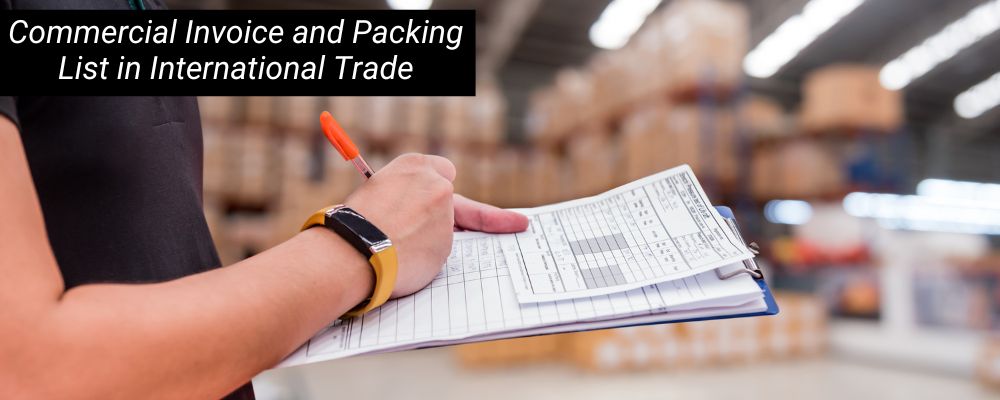
In the world of international trade, proper documentation plays a crucial role in ensuring smooth operations and compliance with customs regulations. Two vital documents that exporters and importers must be familiar with are commercial invoices and packing lists. These documents provide detailed information about the goods being shipped, help determine duties and taxes, verify shipment accuracy, and maintain the integrity of international trade.
What is a Commercial Invoice?
A commercial invoice is a document that serves as proof of transaction when exporting goods. It provides essential details such as buyer and seller information, item descriptions, unit prices, quantities, amounts, and income terms. Think of it as an invoice outlining all transaction-related information for an international shipment or a bill of sale.
The primary purpose of a commercial invoice is to enable Customs authorities to determine the correct duties and taxes to be paid. It also helps buyers understand the contents of their shipments accurately.
Key Elements in a Commercial Invoice:
While there may be slight variations depending on country-specific requirements or regulations, here are some essential elements typically included in a commercial invoice:
1. Seller details (name, address)
2. Buyer details (name, address)
3. Item descriptions
4. Quantities
5. Unit prices
6. Total values
7. Applicable income terms (Incoterms)
Providing clear and concise descriptions for each item is crucial to avoid confusion during customs clearance.
Understanding Packing Lists:
Accompanying every shipment should be an accurate packing list that specifies the contents of each package or container being shipped. This document includes critical information like item descriptions, number of packages or containers involved, volume measurements and weights.
The purpose behind providing this level of detail in packing lists is two-fold:
1) To ensure transparency by allowing all parties involved to understand what’s inside each package.
2) To prevent misunderstandings or discrepancies during transportation.
Customs officers and other relevant parties rely on the packing list to verify the goods, ensuring that they match the information provided in the commercial invoice. This verification process helps maintain accuracy, prevent delays at customs, and avoid penalties.

The Importance of Proper Documentation:
Customs authorities require both a commercial invoice and a packing list when importing or exporting goods. These documents serve as crucial checkpoints for maintaining the integrity of international trade.
They enable Customs officers to:
1) Verify shipment accuracy
2) Determine appropriate duties and taxes
3) Ensure compliance with regulations
Any discrepancies between these documents and the actual shipment can lead to significant consequences. Delays at Customs or even penalties may occur due to inaccurate information. Thus, it is essential to communicate with suppliers or buyers before shipping to resolve any inconsistencies.
Preparing Commercial Invoices & Packing Lists Effectively:
To prepare commercial invoices and packing lists effectively, consider these valuable tips:
1. Standardize Templates: Create standardized templates for your commercial invoices and packing lists to ensure consistency across shipments. This approach saves time by allowing you to fill in required details more efficiently while avoiding accidental omissions or mistakes.
2. Familiarize Yourself with Customs Regulations: Stay updated with country-specific customs regulations where you export/import goods regularly. By understanding these requirements thoroughly, you can ensure that your documentation (commercial invoices/packing lists) complies accordingly—avoiding complications during customs clearance processes.
3.Double-checking Accuracy: Always review all information on your commercial invoice and packing list before shipping. Verify item descriptions, quantities and values against agreed terms with suppliers/buyers. Communicate proactively about any identified discrepancies—making necessary adjustments promptly—to avoid potential issues later on.
4.Record-keeping Practices: Maintain good record-keeping practices by keeping copies of all commercial invoices, parking lists, and other relevant export documentation. This organized approach streamlines future shipments, serves as references in case of disputes or audits, and provides peace of mind.








